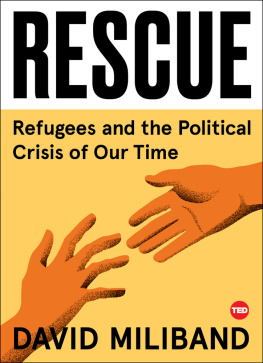
Studies of the Third Wave
Westview Replica Editions
This book is a Westview Replica Edition. The concept of Replica Editions is a response to the crisis in academic and informational publishing. Library budgets for books have been severely curtailed; economic pressures on the university presses and the few private publishing companies primarily interested in scholarly manuscripts have severely limited the capacity of the industry to properly serve the academic and research communities. Many manuscripts dealing with important subjects, often representing the highest level of scholarship, are today not economically viable publishing projects. Or, if they are accepted for publication, they are often subject to lead times ranging from one to three years. Scholars are understandably frustrated when they realize that their first-class research cannot be published within a reasonable time frame, if at all.
Westview Replica Editions are our practical solution to the problem. The concept is simple. We accept a manuscript in camera-ready form and move it immediately into the production process. The responsibility for textual and copy editing lies with the author or sponsoring organization. If necessary we will advise the author on proper preparation of footnotes and bibliography. We prefer that the manuscript be typed according to our specifications, though it may be acceptable as typed for a dissertation or prepared in some other clearly organized and readable way. The end result is a book produced by lithography and bound in hard covers. Initial edition sizes range from 500 to 800 copies, and a number of recent Replicas are already in second printings. We include among Westview Replica Editions only works of outstanding scholarly quality or of great informational value, and we will continue to exercise our usual editorial standards and quality control.
Studies of the Third Wave: Recent Migration of Soviet Jews to the United States
edited by Dan N. Jacobs and Ellen Frankel Paul
During the 1970s the Soviet Union allowed large numbers of its citizens to emigrate, the first major group allowed to leave in five decades. The number of emigres peaked in 1979, with 50,000 persons leaving the USSRmost of them Soviet Jews, most of them bound for the United States.
This book studies this most recent of three major influxes of Soviet Jews into the United States. Using case studies based on six major cities, it considers where the immigrants came from, why they came, how they feel about the Soviet regime and people, what their occupations were in the USSR, and how they are adjusting to social and professional life in the United States. Their responses are compared with those of earlier immigrants to draw conclusions about the role the "third wave" may play in U.S. life. The interviews also shed light on current political, social, and economic conditions in the Soviet Union.
Dan N. Jacobs is professor of political science at Miami University. Ellen Frankel Paul is assistant professor of political science at the University of Colorado, currently on leave and associated with The Hoover Institution.
Studies of the Third Wave : Recent Migration of Soviet Jews to the United States
edited by Dan N. Jacobs
and Ellen Frankel Paul
First published 1981 by Westview Press, Inc.
Published 2019 by Routledge
52 Vanderbilt Avenue, New York, NY 10017
2 Park Square, Milton Park, Abingdon, Oxon OX14 4RN
Routledge is an imprint of the Taylor & Francis Group, an informa business
Copyright 1981 Taylor & Francis
All rights reserved. No part of this book may be reprinted or reproduced or utilised in any form or by any electronic, mechanical, or other means, now known or hereafter invented, including photocopying and recording, or in any information storage or retrieval system, without permission in writing from the publishers.
Notice:
Product or corporate names may be trademarks or registered trademarks, and are used only for identification and explanation without intent to infringe.
Library of Congress Cataloging in Publication Data
Main entry under title:
Studies of the third wave.
(A Westview Replica Edition)
1. Jews, Russian, in the United States--Addresses, essays, lectures.
2. Jews in Russia--Politics and government--1917- --Addresses, essays, lectures. 3. United States--Emigration and immigration--Addresses, essays, lectures. 4. Russia--Ethnic relations--Addresses, essays, lectures.
I. Jacobs, Daniel Norman, 1925- II. Paul, Ellen Frankel.
E184.J5S873 304.8'73'047 80-29250
ISBN 13: 978-0-367-28908-9 (hbk)
Proclaim Liberty throughout the land and to all the inhabitants thereof.
Leviticus 25:10
Contents
, Dan N. Jacobs
, Zvi Gitelman
, Jerome M. Gilison
, Stephen C. Feinstein
, Ellen Frankel Paul and Dan N. Jacobs
, Joseph Drew
, Alexander Dranov
, Ellen Frankel Paul
Dan N. Jacobs
I
The "third wave" of Jewish immigration to the United States, which began in the 1970s, is completely composed of emigrs from the Soviet Union. They are distinctive, inter alia , in that most of them have spent their entire lives under the tutelage of a communist indoctrination system that decries the horrors of capitalist America. Yet, despite their background, they, like their fellows of the first wave which came to an end in the early 1920s and the second after World War II, have chosen to embrace the pressure of a new and--what they have hoped would be--a freer and more propitious life in the United States.
In the past 100 years, Jews have left Russia for a variety of reasons: economic, political, family, personal. But an abiding factor in Jewish emigration has always been the rampant, government-encouraged, often government-induced anti-Semitism. This has been true whether the prevailing government has been tsarist or Soviet.
Jews are scarcely newcomers to Russia. Tradition has it that some found their way to the Black Sea littoral at the time of the Assyrian and Babylonian defeats. In the first half of the eighth century, the kingdom of theKhazari, the dominating political entity in south Russia, converted to Judaism. However, the greatest influx of Jews into Russia did not occur until Poland was dismembered at the end of the eighteenth century and its eastern part incorporated into Russia.
In addition to all the traditional excuses for anti-Semitism in Eastern Europe, Russia experienced the so-called "Judaizing heresy," which challenged the deity of Christ and gained prominent support in the fifteenth century in opposition to Orthodoxy. Jews had nothing to do with the Judaizing heresy; but it made no difference to Russians who, at all levels of society, were gripped by the obsession that the anti-Christ and his "Judaizing" allies stood as a constant threat to Orthodoxy.
In nineteenth century Russia, the Jews were despised by all elements of the population. Even the "liberals" hated them: the Slavophiles because they were foreign, the Narodniki because they were capitalists. Nicholas I (1825-1855) became the bane of Jewish existence. His objective was the assimilation of the Jews, which he attempted to realize by ordering the kidnapping of young boys and their impressment into military service for twenty-five years, with the expectation that during that time they would accept Orthodoxy.








